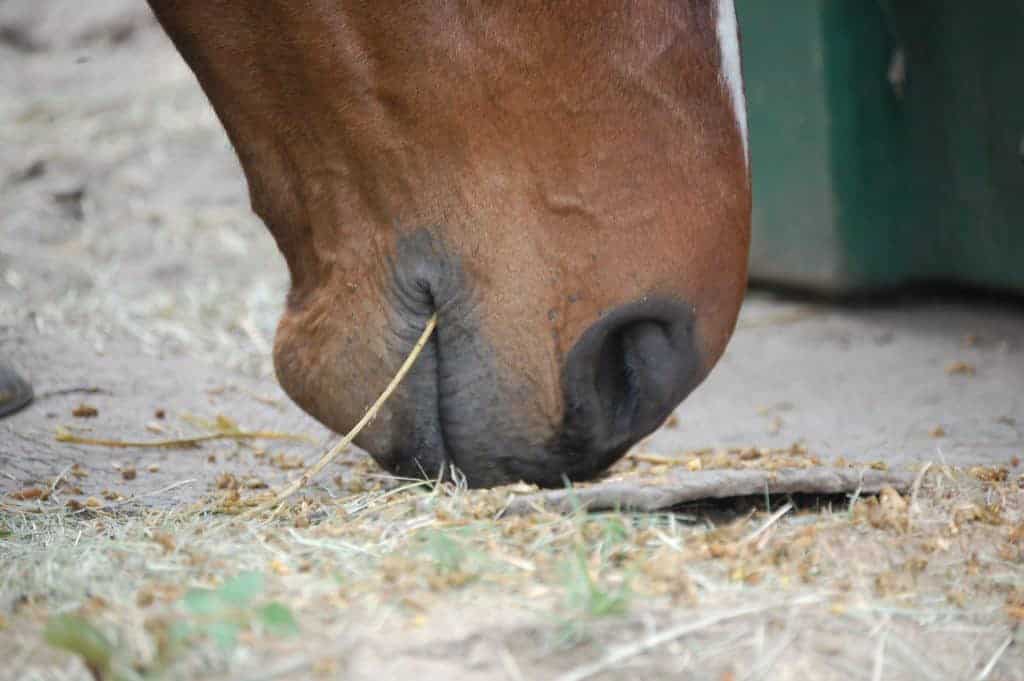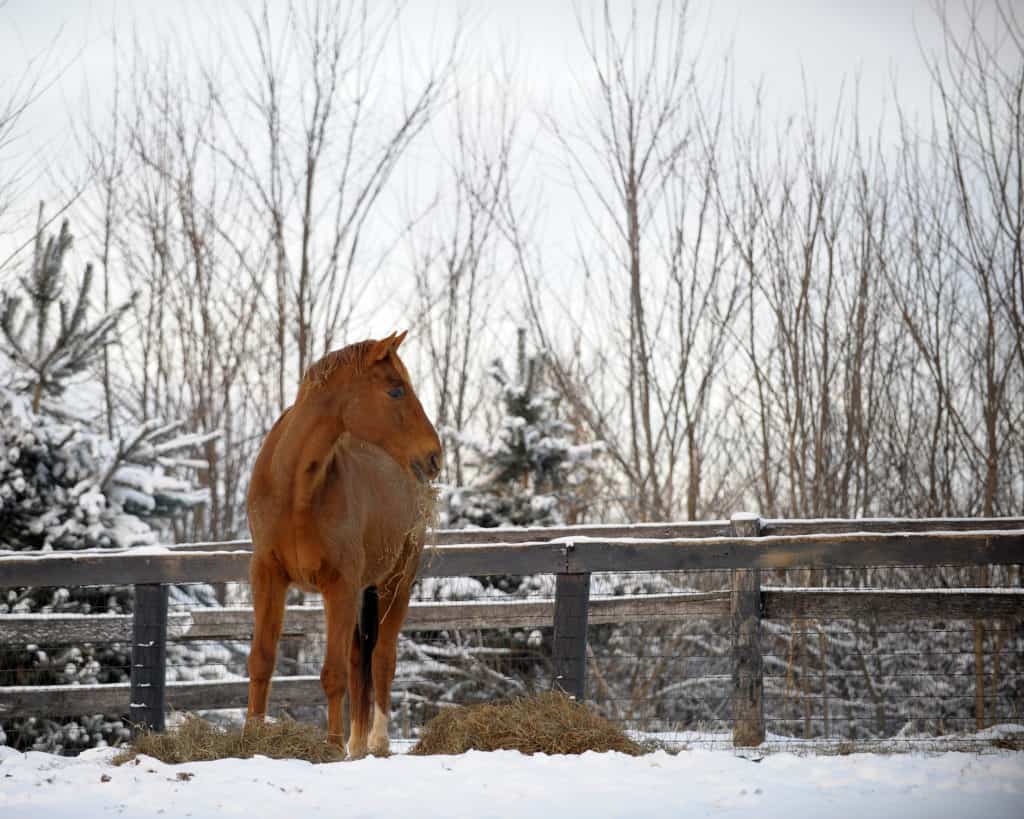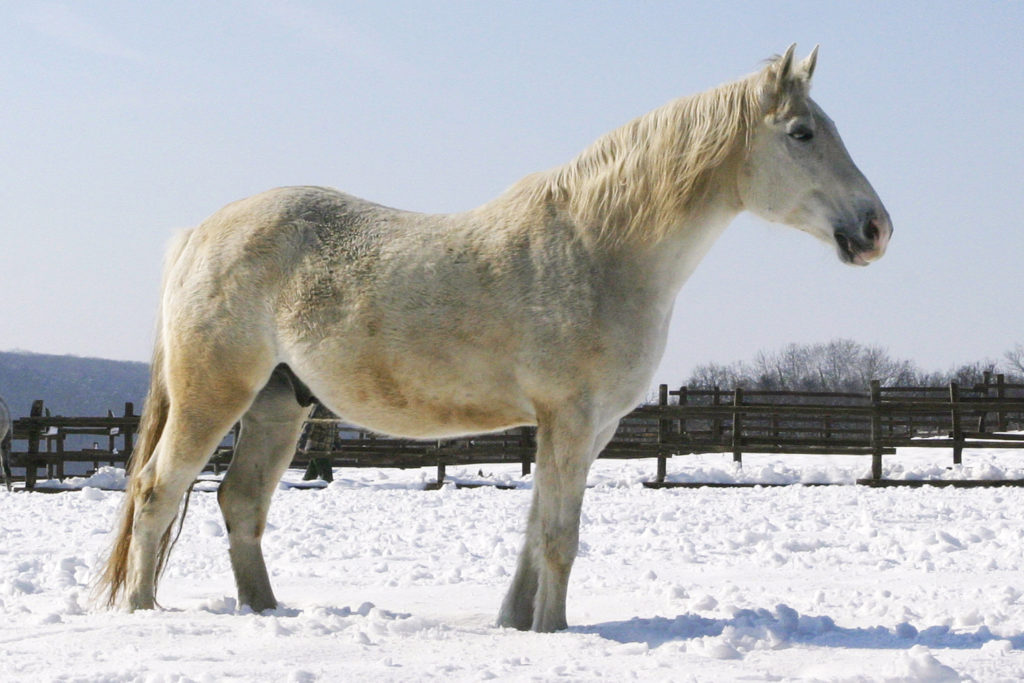
Identifying and Managing Equine Metabolic Syndrome (EMS)
Diagnosing EMS and taking steps to manage it can allow your horse to live a healthy and productive life.

Diagnosing EMS and taking steps to manage it can allow your horse to live a healthy and productive life.

If your senior horse has few to no teeth, he might not be chewing and digesting the nutrients he needs to maintain his health.

Your horse might be benefiting from wheat middlings in his feed, which can help lower starch levels while maintaining a considerable calorie content.

Dr. Liz Arbittier encourages owners and caretakers of senior horses to call their vet if they notice any changes in health or behavior, even when it seems minor, to identify issues and begin treatment early. Here’s what to watch for.

Although it can be damaging if fed improperly, starch can be an important part of horse diets. Here’s what you should know.

Does your horse fling food all over his stall during meal time? Our nutrition expert shares some tips you can try to keep your horse’s enthusiastic eating behaviors from wasting feed.

Do you have a skinny horse? Here are some tips you can use to help him return to an ideal weight.

Weanlings should grow steadily and moderately as rapid weight gain could put them at risk for developmental orthopedic diseases. Three experts share their tips for achieving appropriate growth via nutrition.

It’s one of the most common questions an owner asks: What should I feed my horse? Equine nutritionists look both to research and their own experience to find an answer, but oftentimes the most appropriate one is, “Well, it depends.” Here are some points they might take into account.

When it comes to feeding your horses, don’t make the same mistakes you’ve made in the past in the new year.

With proper care, senior horses can prosper. Here are a few points to consider.

While diet can indeed contribute to a horse being energetic, it’s not the only cause. Our nutritionist shares her thoughts.

Remember these 3 simple things to help your horse maintain his weight and health this winter.

In the past 30 years, researchers have made great strides in understanding gastric ulcers. Those findings and ones yet to be made can help improve horse health and welfare now and into the future.

Are you and your horses heading south for the winter? Prepare in advance to keep your equine charges healthy during and after transport.

Researchers found that 58% of responding hospitals said they consult a nutritional adviser about feeding their patients and 21% reportedly feed all patients the same type of feed.
Stay on top of the most recent Horse Health news with
"*" indicates required fields